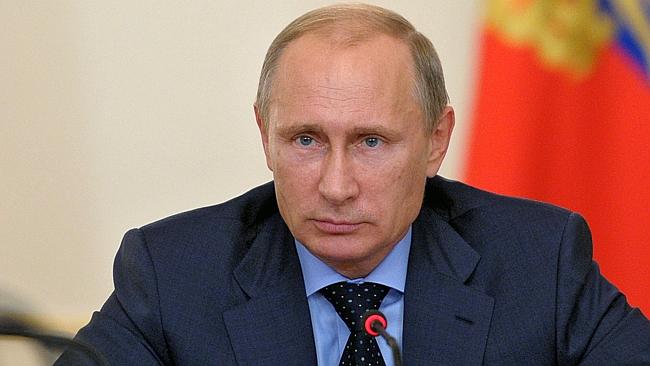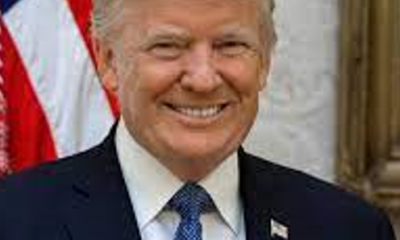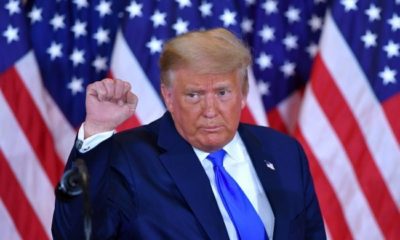International News
Trump Dismisses Four Biden-Appointed Officials, Signals More Shake-ups

In a bold and controversial move on his first day back in office, President Donald Trump fired four senior officials appointed by his predecessor, Joe Biden, and signaled additional dismissals as imminent.
The announcement was made in Trump’s first Truth Social post following his inauguration as the 47th President of the United States.
READ MORE:Trump Completes Return To White House, As 47th US President
“Our first day in the White House is not over yet! My Presidential Personnel Office is actively in the process of identifying and removing over a thousand Presidential Appointees from the previous Administration, who are not aligned with our vision to Make America Great Again,” Trump wrote in the post, titled “YOU’RE FIRED.”
The dismissed officials include Jose Andres of the President’s Council on Sports, Fitness, and Nutrition; Mark Milley from the National Infrastructure Advisory Council; Brian Hook of the Wilson Center for Scholars; and Keisha Lance Bottoms from the President’s Export Council.
Trump used his signature phrase from The Apprentice to emphasize their departure: “YOU’RE FIRED!”
The dismissals are part of a series of sweeping actions Trump has undertaken to reverse Biden-era policies and assert control over federal governance.
Among his first executive orders, Trump instituted a regulatory freeze, halting the implementation of any new rules until his administration has reviewed them.
Additionally, he ordered all federal employees to return to full-time, in-office work, reversing remote work policies from the previous administration.
In a further demonstration of his intent to reshape government, Trump suspended 78 executive orders issued during Biden’s tenure and reiterated his campaign pledge to streamline the federal workforce.
During his 29-minute inauguration speech, Trump outlined his vision for what he called a “Golden Age” in America while delivering sharp criticism of Biden’s administration.
He accused the previous administration of being “radical and corrupt,” pointing to the ongoing Los Angeles wildfires as evidence of its inability to manage domestic crises.
Several government institutions are now preparing for significant upheaval as Trump’s administration moves to implement additional campaign promises, including potential department closures and cuts to civil service roles.
Trump’s immediate and decisive actions have drawn both praise and criticism.
Supporters argue these steps are necessary to restore efficiency and align the government with Trump’s vision, while critics warn that such abrupt changes could deepen divisions and create instability within federal agencies.
International News
South Korean Jet Drops Bombs On Residential Area, 7 Injured
A South Korean Air Force fighter jet accidentally released eight bombs outside a designated training range during a joint military exercise on Thursday, injuring several civilians and damaging buildings, officials said.
The Air Force confirmed that a KF-16 aircraft had mistakenly dropped eight MK-82 general-purpose bombs in Pocheon, a city located about 25 kilometers (16 miles) south of the heavily fortified border with North Korea.
The incident occurred around 10:00 am local time (0100 GMT) during a joint live-fire exercise involving the South Korean Air Force and Army.
READ ALSO: Fire Breaks Out On Air Busan Plane In South Korea, One Injured
“We deeply regret the unintended release of the bombs, which resulted in civilian casualties, and wish those injured a swift recovery,” the Air Force said in a statement.
Officials have launched an accident response committee to investigate the incident and promised compensation for damages.
According to South Korea’s National Fire Agency, the misfired bombs struck a village, leading to injuries and displacement among residents.
Four people were seriously wounded, while three others suffered minor injuries
The explosion also caused damage to a church building and sections of two homes.
Local residents described the moment of impact as a terrifying experience. A villager, identified only by the surname Park, told Yonhap News Agency that he was watching television when the explosion occurred.
“I suddenly heard an enormous explosion, like a thunderclap, and the whole house shook. When I went outside, everything was in chaos,” Park said.
Even a senior center located about a kilometer away felt the impact of the blast. The director of the center, surnamed Yu, recounted the panic among the elderly residents.
“A sudden explosion shook the building. The windows shattered, and one of our teachers was injured and taken to the hospital,” Yu said. “Fortunately, none of the seniors were hurt, but they were so frightened that we sent them all home.”
The accident occurred as South Korea and the United States conducted joint live-fire drills in the area. The two allies are preparing for their large-scale annual military exercise, “Freedom Shield,” set to begin later this month.
The Korean Peninsula remains in a state of war since the 1950-1953 Korean War ended in an armistice rather than a peace treaty.
The United States maintains tens of thousands of troops in South Korea as part of its defense commitment against potential threats from North Korea.
This is not the first time South Korea has experienced a military mishap. In 2022, a South Korean Hyunmu-2 ballistic missile crashed into a military golf course during a test, though it did not explode and no injuries were reported.
Authorities have assured the public that a thorough investigation will be conducted to determine the cause of the accidental bomb release and to prevent similar incidents in the future.
International News
Pope Francis’ Condition Improving, Says Vatican
Pope Francis is experiencing clinical improvements following a severe case of pneumonia, but concerns about his overall health persist, according to Vatican sources.
The 88-year-old pontiff has been hospitalized at Rome’s Gemelli Hospital for the past two weeks, with medical updates indicating gradual progress.
A Vatican source confirmed on Friday that “the criticality has passed, for the moment,” though they cautioned that his condition “remains complex” and that his prognosis remains “reserved.”
The pope was admitted to the hospital on February 14 after experiencing breathing difficulties.
READ ALSO: Pope Francis Preaches Peace Amid Iran Attack
His condition worsened over the weekend, developing into pneumonia in both lungs, raising global concern about his health.
However, in recent days, the Vatican has released a series of more optimistic updates.
On Monday, the Vatican reported a “slight improvement,” followed by confirmation on Tuesday that his condition was “critical but stable.”
By Wednesday, another “slight improvement” was noted, and Thursday’s update stated that “the clinical conditions of the Holy Father are confirmed to be improving today also.”
Despite this progress, the Vatican has not yet lifted its “reserved” prognosis, meaning doctors remain cautious about predicting his recovery.
Officials have warned that Francis’s advanced age and chronic respiratory condition mean a full recovery will take time.
“Given the complexity of the clinical picture, further days of clinical stability are necessary to resolve the prognosis,” the Vatican stated on Thursday.
Despite his health struggles, Pope Francis has continued to work from his hospital suite on the 10th floor of Gemelli Hospital. Vatican sources say he has been resting, praying, and doing breathing exercises to aid his recovery.
This hospitalization is the fourth of his nearly 12-year papacy and his longest stay to date.
Over the years, he has undergone surgeries for a hernia and colon issues, while knee and hip pain have required him to use a wheelchair.
As the pope battles health challenges, speculation about a possible resignation has reemerged.
Vatican expert Marco Politi suggested that if Francis recovers, he may complete the Jubilee Year celebrations before considering his future.
“If the pope survives, many imagine that he will want to finish the Jubilee year, but that afterwards, when he is 89, he will face the question of whether or not to resign,” Politi told AFP.
Francis has previously stated that he is open to following the example of Pope Benedict XVI, who resigned in 2013 due to health concerns.
However, before his hospitalization, Francis repeatedly emphasized that it was not yet time for him to step down—and that it may never be.
For now, the Vatican and the global Catholic community remain hopeful that the pontiff’s condition will continue to improve in the days ahead.
International News
Suspected Attack: Explosion Strikes Russian Consulate In France

An explosion has hit the Russian consulate in Marseille, France after three projectiles were thrown over its perimeter wall, triggering a major emergency response.
Firefighters battled a blaze inside the diplomatic building as security forces moved to secure the area.
The Russian Consul General confirmed on Monday that the blast originated inside the consulate, leading to an immediate lockdown of the premises.
READ ALSO: Police Rescue Six Children In Lagos Building
By 9:30 a.m., around 30 emergency workers were engaged in firefighting and rescue operations.
The incident coincides with the third anniversary of Russia’s full-scale invasion of Ukraine and comes as French President Emmanuel Macron travels to Washington, D.C., for urgent talks with U.S. President Donald Trump regarding the ongoing war.
Russia’s state-run news agency TASS reported that the Russian Foreign Ministry described the explosion as having the characteristics of a “terrorist attack” and has urged French authorities to conduct a thorough investigation.
Photos and videos from the scene show thick smoke billowing from the consulate as emergency services work to contain the situation.
The Russian Foreign Ministry has also demanded a full inquiry from French officials as security measures in the area are reinforced.

















